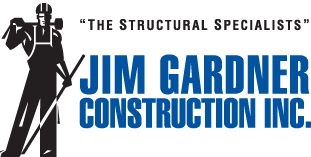Dear Jim: I am about to start on a new retaining wall project in my back yard. I’ve received several bids, but they vary dramatically. I’m not sure I need a permit, and the unlicensed landscaper that was recommended to me is about half the price of the licensed contractors for the same work. Would it be OK to go for the unlicensed bid if they do good work?
It’s Complicated
There are a variety of factors to consider when picking the right person or company to do your project, whether they are licensed or not. Some of these are obvious, but there may be other issues to consider that are more subtle, which I will try to briefly outline here.
Licenses and Permitting
Most jobs require building or trade permits, with some notable exceptions. Different cities or jurisdictions have slightly different rules regarding what projects are permittable or that might require planning and zoning approval that will determine the size or where on the property things can be built. Piedmont tends to be more restrictive, but in many communities work like driveways, walkways, landscape retaining walls (less that 3’), fences 6’ or less, and a variety of interior work such as cabinets, flooring, painting, and wallpapering, etc. are not regulated. Once you check on your specific project with the city, if no permits are required then you are clear to work with an unlicensed vendor if you choose to.
Liability and Risk
Unlicensed folks are generally uninsured, which makes you liable for any injuries that might occur on the job, damage to your property, improper work, or their failure to complete the project or return afterwards should any issues arise. Since unlicensed workers are often less financially solvent than licensed contractors, they are less likely to stick around should problems arise and may not come back to correct them.
Limited knowledge base and issues with the scope of work
Even if your unlicensed company has good intentions, the fact that their jobs are done without approved plans, design or engineering, or inspections means that it may be difficult to monitor the progress and quality of the work. When jobs are more complex there are more likely to be issues. For example, fence building may be basic, but the details of designing and installing a proper drainage system or the dimensions and rebar placement in a concrete wall, etc. may require knowledge they don’t possess or drawings that aren’t available. These can be critical details that determine if the work stands the test of time.
The Bottom Line
If the job is simple enough and doesn’t required permits, do your homework. If you have someone unlicensed you want to hire, make sure your homeowner’s insurance covers the project or upgrade it for the work. Check their references and previous projects. Further, have them sketch out what they plan on doing and fact check it with someone licensed or do some online research to validate their approach. Finally, when in doubt, get somebody licensed (preferably with 20-30 years doing your specific type of work) and you will sleep better knowing your bases are covered.
Conversations with Your Local Contractor is a feature by Jim Gardner of Jim Gardner Construction Inc. (with articles finessed by Lisa Gardner). If you have residential, homeowner questions OR ideas for an article you’d like Jim to highlight, please send an email to jim@jimgardnerconstruction.com.
Jim is a long-time Piedmont resident and has been doing structural repair and basement renovation in your neighborhood since 1983. To schedule an estimate or for more information please go to our website at jimgardnerconstruction.com.



